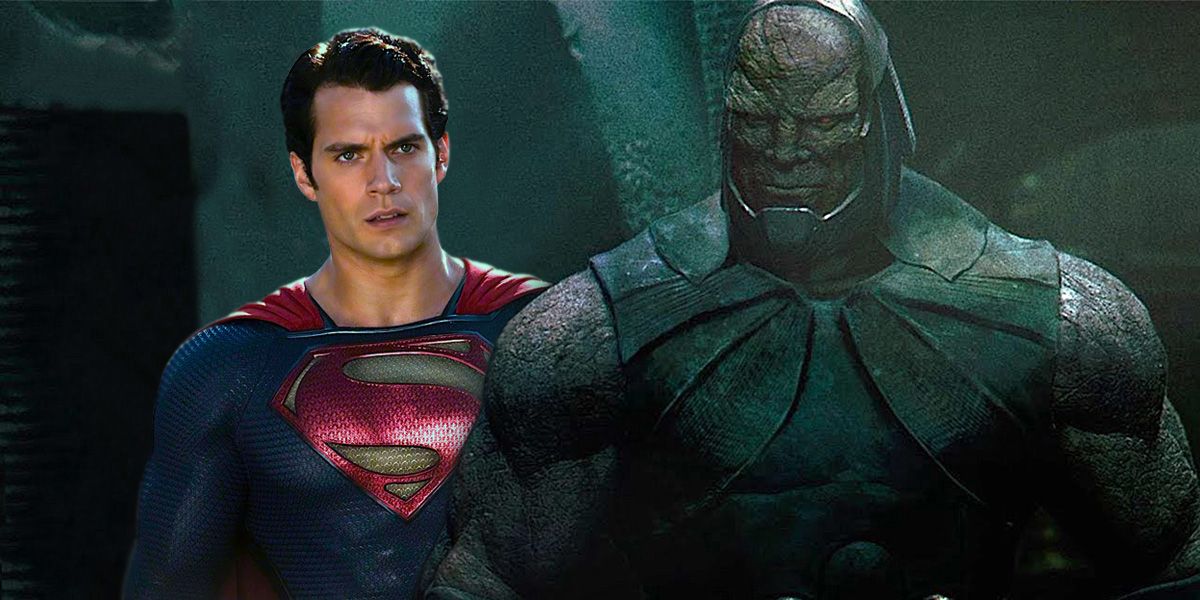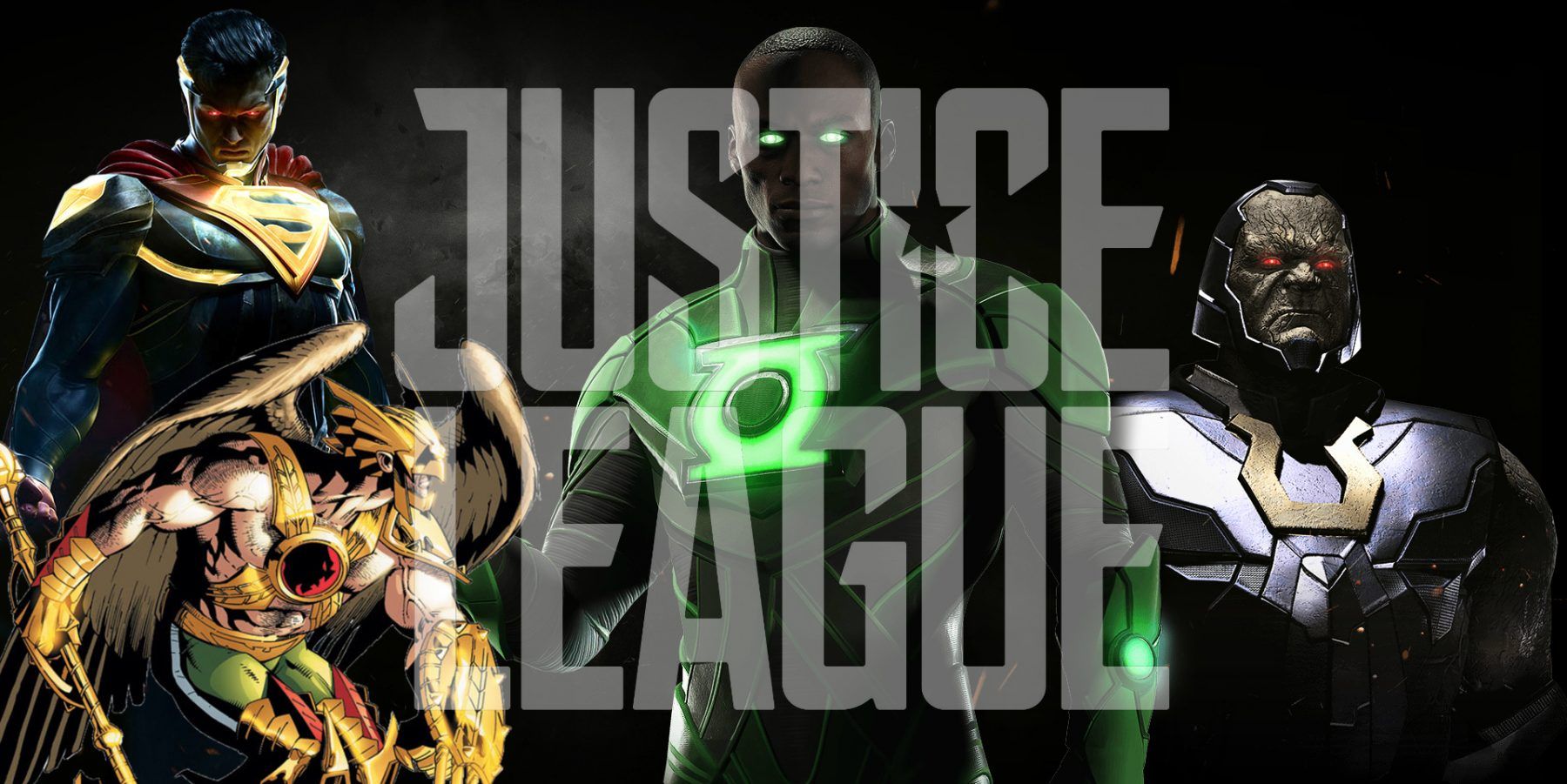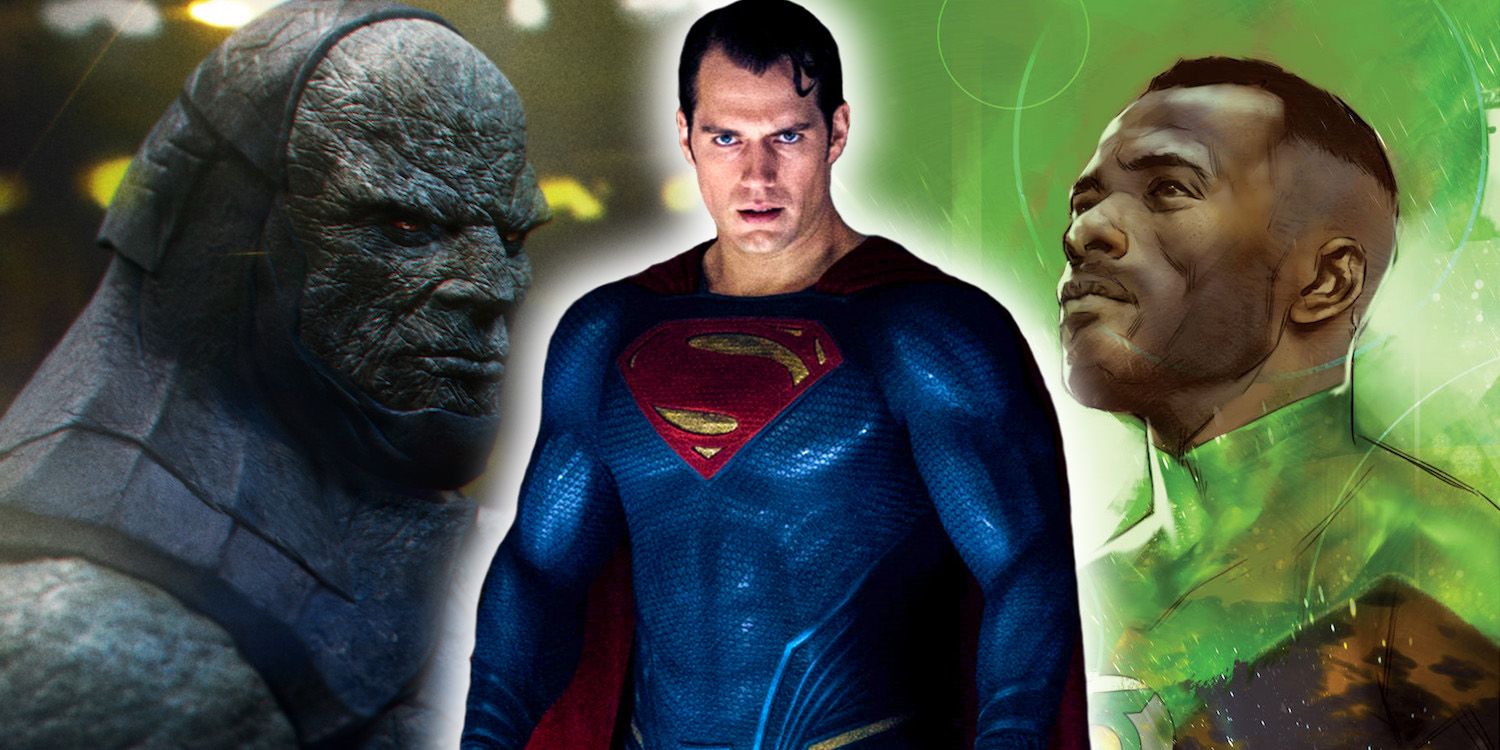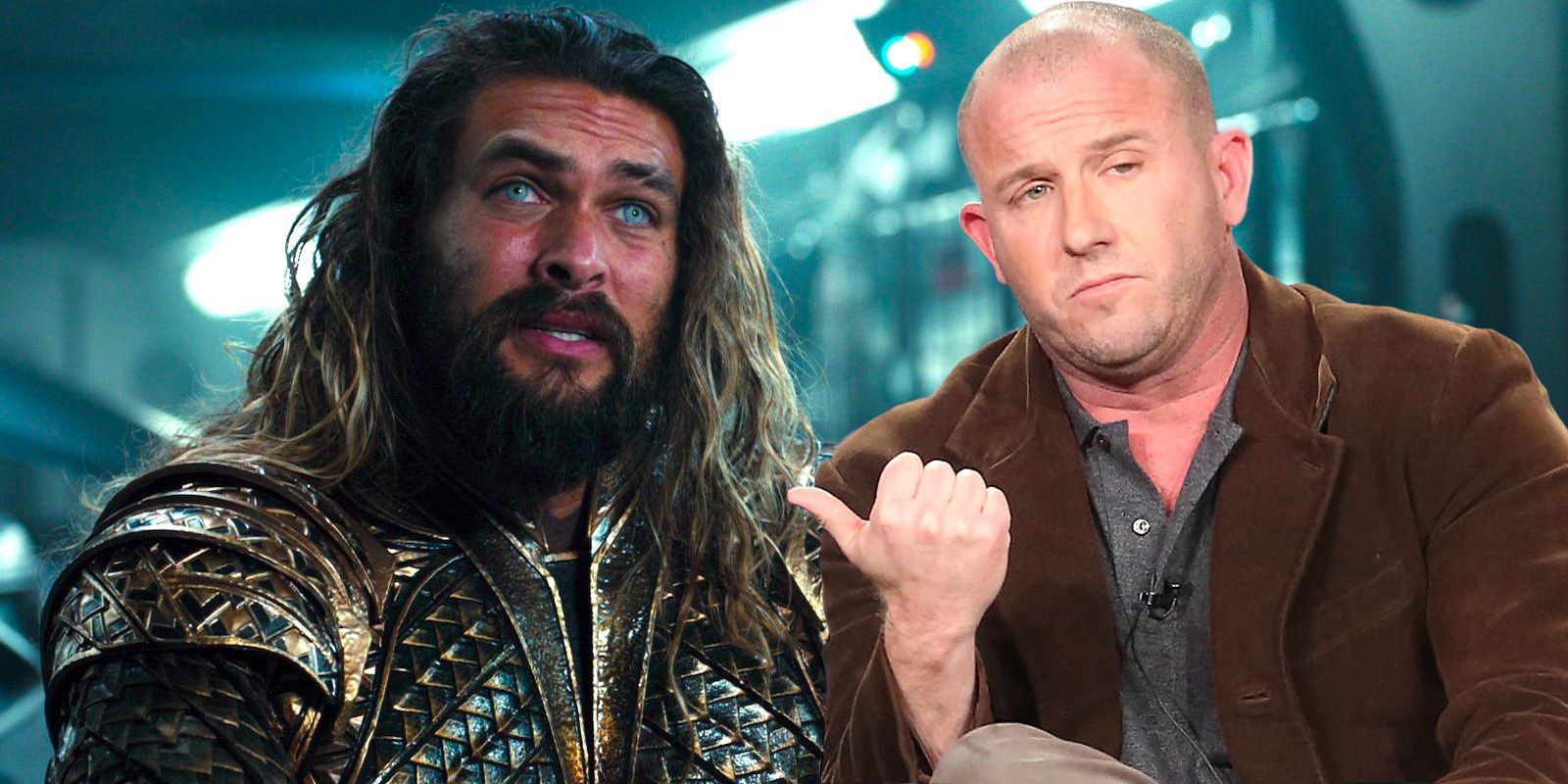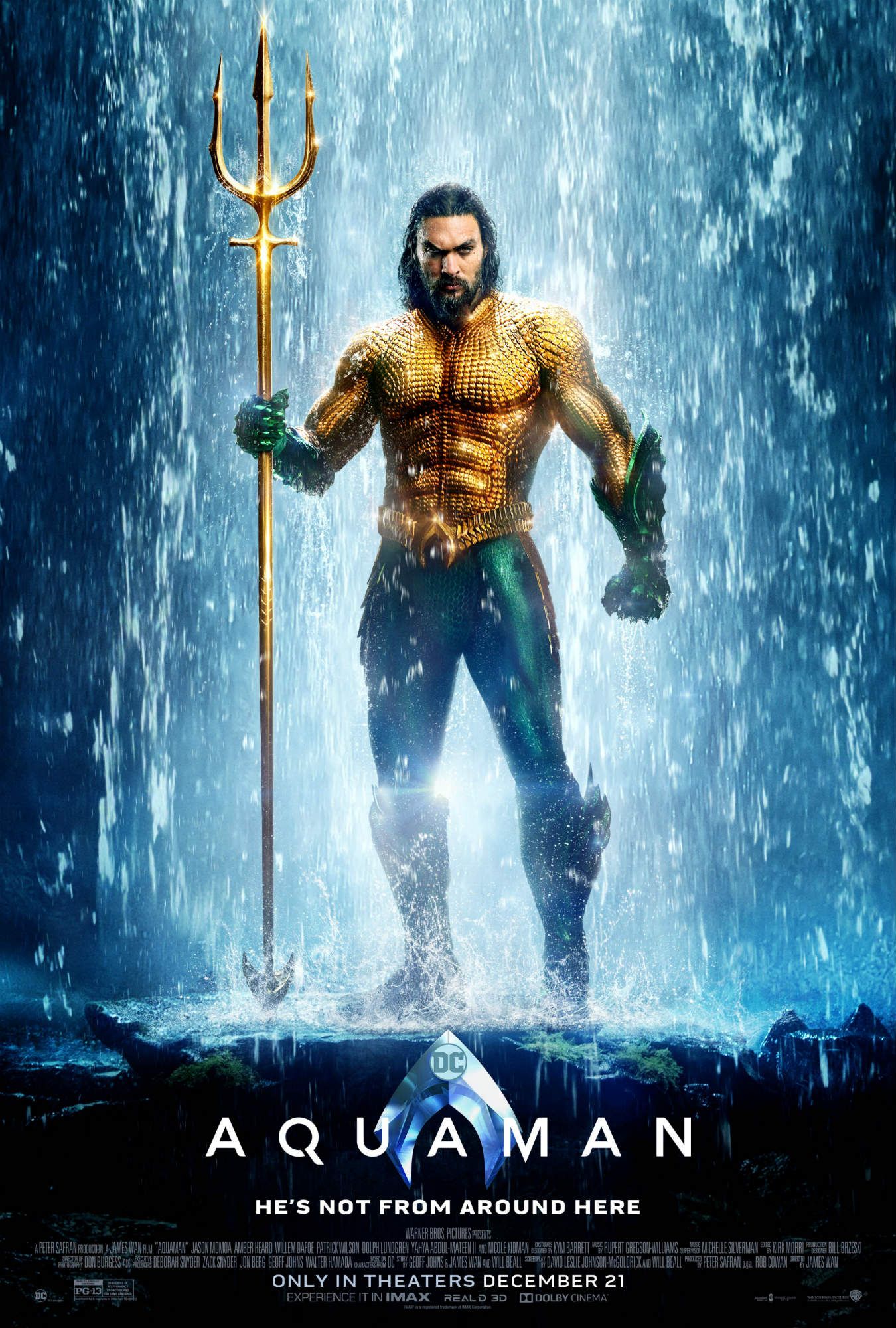-- Feature image made using concept art from George Evangelista --
The story behind Justice League's rocky road to the big screen has gained a new chapter, as new details of an early version of the movie script have emerged. In 2012, screenwriter Will Beall was officially brought on board by Warner Bros to pen the script for DC's big team-up. The announcement came hot on the heels of the game-changing success of Marvel's first Avengers movie, with WB banking on an unproven, up-and-coming talent to bring their own famed heroes to life. A former detective with the Los Angeles Police Department, Beall already had a close relationship with the studio when he signed on for Justice League. At the time, he was working on a remake of Logan's Run and a reboot of the Lethal Weapon franchise, and there was a ton of positive buzz surrounding his first produced screenplay, Gangster Squad, which was set to hit theaters later that year.
2012 was a time of transition for Warner Bros' DC franchises. Ryan Reynolds' Green Lantern movie had flopped the year before, Christopher Nolan was wrapping up his Batman trilogy with The Dark Knight Rises, and Zack Snyder was hard at work on Man of Steel, which was due out a year later. Beall's script was likely being positioned as a direct follow-up to the latter, but unfortunately, that plan seemed to fall apart once folks got a look at the screenwriter's handiwork. After having its release date pushed to early 2013, Gangster Squad was shredded by critics, with many calling out the clichéd, plot hole-ridden screenplay in particular. Beall's Justice League script was scrapped completely shortly afterwards, as Warner Bros and DC decided to hit the reset button on the project rather than attempt to rework it in any way.
Related: Scrapped Justice League Script Reveals WB's Movie Plans Before DCEU
Before today, specific details regarding Beall's script have been scarce. We know that it would have addressed continuity questions surrounding the likes of Batman and Green Lantern, we know which villains were in line to star, and we have an idea of which comics were being used for inspiration. But with The Wrap now reporting the details behind an early draft of the screenplay (dated 2011), we have a better idea of why Beall's script ended up getting tossed out.
We've already provided a brief rundown of Beall's overstuffed Justice League script, which would have introduced upwards of two dozen characters (!) from the DC Comics canon. (And you thought Batman v Superman was overstuffed.) Though the script was written sometime in 2011, roughly two years before Henry Cavill's debut in Man of Steel, it's likely that that iteration of the character was being positioned to star in Justice League. But since every other character mentioned in The Wrap's write-up would have been a new addition, Cavill's Superman would've been the lone familiar face in the entire cast. Seriously, if you aren't a fairly knowledgeable DC Comics fan, this movie would have been all but impossible to follow -- assuming The Wrap's summary of the screenplay is accurate, of course.
Beall's plot essentially centered around the villainous Darkseid brainwashing Supes and attempting to take over Earth, with major events like the total decimation of the Green Lantern Corps and multiple instances of time travel sprinkled throughout. The final League roster would have consisted of Batman, Superman, Wonder Woman, the Flash, and John Stewart's Green Lantern, but the door would've been left open for heroes like Hawkman, Green Arrow, and Aquaman to join up in the potential sequel. What direction that follow-up would have taken isn't entirely clear, but a presidential run for Lex Luthor is teased at the end, and countless villains (including Deathstroke, Amanda Waller, Cheetah, and Captain Boomerang) are introduced throughout. Oh, and in a glimpse at a post-apocalyptic future, Batman and Wonder Woman have a child named Clark Wayne. So...there's that.
Based on The Wrap's rundown, the story simply would not have worked as a live-action blockbuster. The sheer number of characters that are introduced would have made it impossible for average moviegoers to wrap their heads around what was going on onscreen. It seemingly makes the sort of assumptions of its audience that DC's animated, direct-to-DVD efforts make; everyone watching knows all these characters, so their backstories are well-worn and superfluous. You simply can't get away with this sort of thing in a big-budget Hollywood film that's aiming to set up a shared universe and appeal to millions of casual fans.
Comparing the Beall script with other Justice League film projects
Many scrapped Hollywood scripts have scenes or storylines that are eventually recycled in later drafts. That said, from what we know about Beall's script, he doesn't seem to have lifted too much from existing Justice League stories, nor from George Miller's previously scrapped Justice League Mortal project. There aren't many borrowed elements to be found in this year's Justice League movie, either. There does seem to be one significant similarity between the DCEU JL, Mortal, and Beall's story, however: the titular team is forced into a fight with Superman.
Infighting amongst would-be teammates is almost an expected story element in the comic book movie genre, and all three versions of the Justice League film feature the biggest one DC can muster. As you know, this year's JL film saw the team come to blows with the Man of Steel after bringing him back from the dead. Supes was apparently just a wee bit confused by the whole, suddenly being alive again thing, and after an accidental provocation from Cyborg, he gets into a brief dustup with the Leaguers before being brought back down to earth by Lois Lane. Superman is mind-controlled into fighting the Justice League in both Mortal and the Beall script, though it's Wonder Woman who manages to snap him out of it in those two tales. Conflict between teammates is always a great source of drama in superhero team-up flicks, and all three iterations of the JL script take full advantage of that.
Related: What Justice League 2017 Borrowed From George Miller's Failed JL: Mortal
Another similarity between the Beall project and the Justice League film that's currently in theaters is the decision to cut founding members of the team from the proceedings. Both projects opted against bringing Martian Manhunter to life, and while you're surely aware of the lacking Green Lantern presence in the DCEU team-up, Beall's script instead left the King of Atlantis on the backburner. Which is pretty odd, considering that he's the screenwriter behind the 2018 Aquaman movie.
What this means for the Aquaman solo movie
Will Beall's Justice League script aimed about as high as you can possibly aim with a screenplay, and it certainly isn't lacking in fan service or potentially epic moments. What it is lacking, however, is Arthur Curry, the man who can talk to fish. While Aquaman does reportedly get a shoutout in a first act conversation between Batman and Superman, he's completely MIA from the rest of the film. Studio meddling was said to be a major factor in the behind-the-scenes struggle to bring the Justice League to the big screen this time around (sound familiar?), so it's possible that Warner Bros. executives were against introducing Aquaman in the film and therefore forced his exclusion. Given what we know about the storyline, it wouldn't have been an easy feat to introduce the character, either, since such a large portion of the storyline takes place off-world. This script is over-stuffed enough; introducing a whole oceanic sideplot just to bring in one more hero wouldn't have made much sense.
Looking at the bigger picture, Beall's less-than-promising work on Justice League doesn't exactly inspire added confidence in the 2018 Aquaman movie, for which he's the sole credited screenwriter. Outside of his work in the comic book realm, the only credits on Beall's filmography are ABC's Castle and CBS' Training Day -- and, of course, his groan-inducing work in 2012's Gangster Squad. That stinker squandered an A-list cast (Sean Penn, Ryan Gosling, Josh Brolin, and Emma Stone all inexplicably signed on for this one) in a sea of laughable dialogue and by-the-numbers plotting. 2012 was a long time ago, but man, we really hope his Aquaman screenplay proves to be a major step up.
In the end, the Justice League movie we did get was definitely a mixed bag, though we have to imagine that we ended up with the lesser of two evils. Beall's script would've cost a fortune to produce (possibly being even more expensive than the DCEU movie's final price tag), and unless its plot was way less complex than The Wrap is making it sound, it's hard to imagine that a comprehensible movie could have come out of it. Fingers crossed that Aquaman is a bit more reigned in.
Next: Justice League's Original Ending Would've Saved The Film
Source: The Wrap

